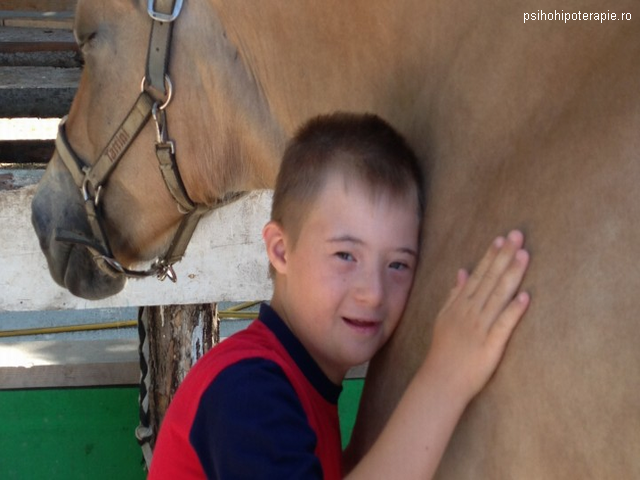Hippotherapy
Hippotherapy, or horseback riding therapy, is a form of alternative therapy also used in Romania in recent years.

Ana-Maria Cononovici, 06.08.2014, 00:26
In 1964, the American psychiatrist Boris Levinson initiated a new trend in the treatment of people with disabilities as the founder of animal-assisted therapy using dolphins, fish, parrots, horses, as well as cats and dogs.
Research has shown, for example, that dogs are very good at anticipating epileptic seizures, talking parrots help ease cardiac pain, while cats help reduce blood pressure and reduce anxiety, depression and even schizophrenia. Dolphins are very good at communicating with autistic children, horses help people restore their psychological balance, and fish swimming in a fish tank are very relaxing to watch. The goal of animal-assisted therapy is to help people with disabilities develop their emotional abilities and achieve social integration.
Certain research has also shown that people who are affectionate to dogs and children are equally affectionate to people. In Romania, this unconventional form of therapy has only recently started to be used, in particular for the rehabilitation of people in detention centres and children with disabilities.
Lilica Fratiman is a paediatrician and head of department at the Constanta County Hospital, as well as the dean of the Andrei Saguna Faculty of Psychology in Constanta. She told us more about a form of animal-assisted therapy which involves horses, known as hippotherapy:
“Hippotherapy is useful in many respects. It helps treat people with social adjustment issues and people with physical health problems, such as neuromotor and psychomotor impairments and children with brain paralysis or Down syndrome. In Romania, hippotherapy was first used in the treatment of children suffering from various forms of autism before being later extended to the treatment of other ailments and diseases. We know very well that the problem with autistic children is that they do not live in our world, but in a world of their own. They are not necessarily ill, but make sense of the world around them in a different way. Horses, with their natural protective instincts and soothing cadence, bring these children closer to our reality, helping them become more anchored in this reality. On horseback, these children are calmed by the horse’s movement and pace. Children can thus learn new movements and new words and this means huge progress in the development of a child with autism. It’s the same with other diseases, be they genetic, degenerative or caused by birth hypoxia.”
Scientific studies conducted have confirmed the positive effects a pet can have on a person who is either lonely or ill, or on children suffering from various diseases. It has been proven that animals can improve a person’s psychological condition and communication skills and can boost self-confidence.
While cat and dog-assisted therapy is relatively more common and also fairly accessible, the same is not true of hippotherapy, which appears to be an exclusive form of therapy.
However, many rehabilitation centres in Romania are promoting hippotherapy. In the beginning, this type of therapy could only be used in good weather, mainly from spring to autumn, but today, these centres have indoor riding areas so children can benefit from this type of therapy all year long.
Horses can also be used to treat severe autism. By contact with the horse’s body, autistic patients discover their own bodies and start distinguishing between their world, which to them used the be the only existing universe, and the outside world. Lilica Fratiman told us how effective this form of therapy is:
“Results vary depending on how complicated the case is and the type of ailment we are treating. I’ve seen people with autism who have changed their behaviour from one day to another. They usually come screaming and refusing any contact with reality and the people around them, but after only 30 minutes of horse riding I see them smile. Concrete results can only be seen after several weeks of therapy, with two or three sessions per week.”
One session of hippotherapy lasts between 30 minutes and one hour, depending on the condition of the patients and their wish to collaborate. Associations working in this field are trying to introduce hippotherapy as adjuvant therapy in psychotherapy and make it part of the national psychotherapy system.






























